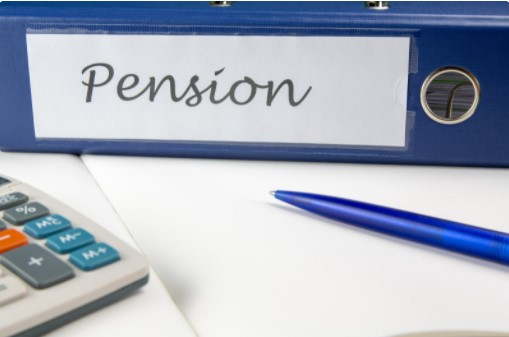It is unlikely that many people will look back on 2020 and 2021 with fond memories, thanks to the COVID-19 pandemic with its social distancing and lockdown measures. The way of life we have generally taken for granted for so long has been turned upside-down, preventing many from acquiring even their daily needs. However, having to bear the restrictive consequences of a pandemic is nothing compared to the sacrifice and suffering many people have gone through.
Dealing with the financial implications of COVID restrictions has been difficult for many. Indeed, it has caused many people to seek new or additional sources of income. Some people have opted to take money from their pensions to help get them through the pandemic. However, doing so may not be the best solution for you, and there are other ways of getting financial help and assistance. Read on to learn more.
 Stay Abreast of the News and Changes to Benefits
Stay Abreast of the News and Changes to Benefits
These are unprecedented times, and the government has introduced unprecedented measures to deal with the pandemic. They have introduced various grants and furlough schemes to support businesses as they struggle to survive. However, fears remain that there is insufficient support to keep many companies afloat.
Thankfully, the government seems to be aware of these concerns, and they are continuously searching for new ways to provide grassroots support. Often these new initiatives are only available for a limited period. To ensure you don’t miss out, you should stay abreast of what’s going on in the news and look for changes in benefit regulations: the government website, gov.uk, is an excellent place to check regularly.

Avoid Further Debt
It is an unpleasant reality that many people will exit the COVID-19 pandemic in debt. Understandably, you might start to panic as your debt increases. Something that people find themselves doing is going to loan companies and borrowing further funds.
Unfortunately, other loans are not an ideal solution as it will mean you’re incurring even more interest payments. The more money you’re paying on interest, the less you’ll have to pay down your loan capital. If you have any savings, you should consider using these to pay off any outstanding debts rather than borrowing further.
Get In-Tune With Your Finances
If there’s anything positive to come from the COVID-19 pandemic, it may be that people have become more in tune with their finances. You may have noticed that you are checking your money more often and getting a better understanding of your assets should you need to liquidize them to cash. It may not be what you had envisaged doing with your assets, but turning them into cash could be a better option than cashing in your pension. It will undoubtedly be a better option than getting into further debt.

Often, getting in tune with your finances is best done with the help of an independent regulated financial advisor. They can discuss your finances with you and talk you through the best options available for whatever assets you have available. Rather than selling assets oblivious to the impact that will have on your future finances, a financial advisor will be aware of the effects of your decisions.
Your Pension Options for Financial Support
In 2015, the government passed legislation enabling pension-holders to access their pension funds from the age of fifty-five. At this age, you have the option to take a tax-free lump sum of up to 25% of your total pension fund. You can also choose to take further lump sums, which will be taxable. Or, you can choose to take a lump sum and leave some of your funds as a pension. Indeed, you now have considerable flexibility with what to do with your pension funds, although not all pensions offer this particular feature.

Despite this flexibility and the appeal of using your pension funds to rescue your financial situation following the pandemic, it may not be in your best interest to take a lump sum from your pension, tax-free or otherwise. If you take a lump sum, it can significantly impact your tax status for that year. It could also leave you short of income when you come to retire. Any decision you make regarding your pension should be carefully thought through, and it is best to discuss these decisions with a financial advisor.
Professional Pension Advice
When the government changed the regulations about accessing pensions in 2015, they were aware that many people would be vulnerable to making a rash decision about their pension and jeopardizing their future retirement income. For this reason, they made free guidance available to pension holders who want to access their pension funds before their retirement.

Two such sources for guidance are Pension Advisory Service and Pension Wise. Both these websites provide free guidance about what you can do with your pension funds. However, you should be aware that these websites are only for guidance, and they are not designed to advise you about your circumstances. To get specific advice, you will need to consult with a regulated financial advisor.
Conclusion
The pandemic has caused financial uncertainty for many and put plenty of people further into debt. Although cashing in your pension may seem like a good idea to relieve your financial pressures, you should think carefully before choosing this option.
Try to use other financial support mechanisms available, and if you are unaware of what is out there, do some research. Certainly, borrowing more, thinking it will help get you out of debt, is generally a recipe for financial disaster, so you should avoid this at all costs.
Having come through the pandemic, you will hopefully now be more in tune with your finances. If there is one good thing to look back on this pandemic in a positive light, it might just be that.
Before looking at options for your pension, consider using a regulated adviser like Portafina or, view the information at The Pension Advisory Service.



































